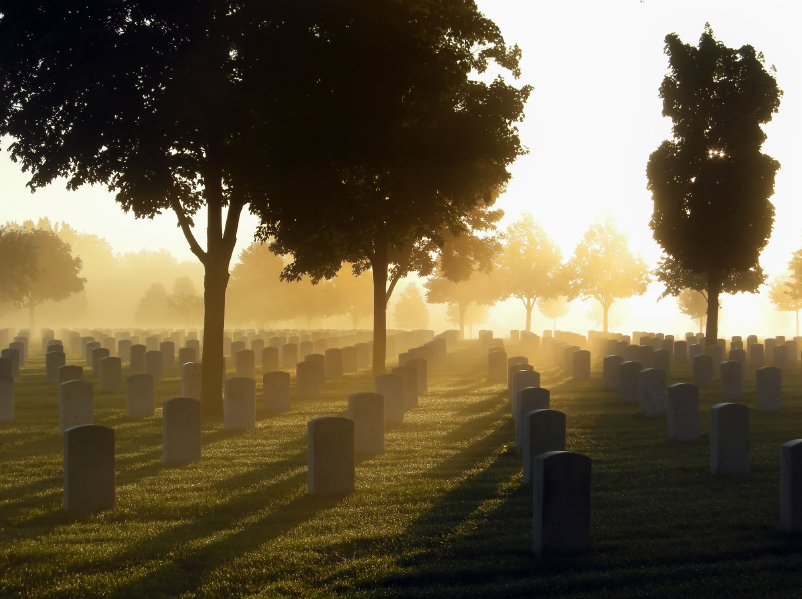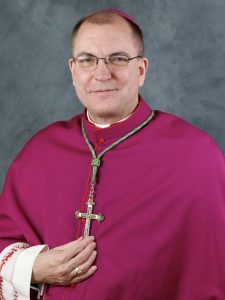 A few months ago, Bishop John O. Barres of the Diocese of Rockville Center wrote a compassionate but firm letter to his flock warning them about the dangers of visiting mediums to contact their dead.
A few months ago, Bishop John O. Barres of the Diocese of Rockville Center wrote a compassionate but firm letter to his flock warning them about the dangers of visiting mediums to contact their dead.
Bishop Barres begins his letter by expressing his understanding about why people resort to mediums.
“Something deep within us rebels against the idea that we could be utterly snuffed out as though we had never existed. We cling to the belief that we and those we love are not subject to eternal nothingness. But human nature always seeks assurance, and an increasingly popular supposed path to such assurance is recourse to mediums,” he writes.
Mediums are very popular on television and the Internet, he acknowledges, and some even profess to be Catholic which makes their supposed messages from the other side seem to be provided as loving acts of comfort to the bereaved; but this is not what Scripture says about those who engage in the practice of necromancy.
“Let there not be found among you anyone who causes their son or daughter to pass through the fire, or practices divination, or is a soothsayer, augur, or sorcerer, or who casts spells, consults ghosts and spirits, or seeks oracles from the dead. Anyone who does such things is an abomination to the Lord…” (Deuteronomy 18:10-12)
Likewise, the Catechism also condemns these practices.
“All forms of divination are to be rejected; recourse to Satan or demons, conjuring up the dead or other practices falsely supposed to ‘unveil’ the future. Consulting horoscopes, astrology, palm reading, interpretation of omens and lots, the phenomena of clairvoyance, and recourse to mediums all conceal a desire for power over time, history, and, in the last analysis, other human beings, as well as a wish to conciliate hidden powers. They contradict the honor, respect, and loving fear we owe to God alone” (CCC No. 2116).
This list might seem like a bit of a shock, the bishop writes, because horoscopes are commonly found in newspapers and Ouija Boards are marketed to children, and most people who resort to these practices aren’t looking to offend God or consort with demons, so why is the Church so forceful in their prohibition?
“Perhaps, first and foremost, because the dangers of these practices are not obvious, making them all the more perilous. While the desire to connect with the dead and find hope in loss may seem perfectly Christian, the practices condemned by our faith actually corrupt those good desires and lead us further away from God,” he explains.
 “How? We can speak of two hidden dangers associated with any form of divination, but especially with consulting mediums: first, the practices attempt to circumvent God; second, to put it plainly, if frighteningly, in doing so they open one to demonic influence.”
“How? We can speak of two hidden dangers associated with any form of divination, but especially with consulting mediums: first, the practices attempt to circumvent God; second, to put it plainly, if frighteningly, in doing so they open one to demonic influence.”
This is because when we visit a medium, we are implicitly showing that belief in God is not enough; we need to know for ourselves, he continues.
As Christians, we should trust in our loving God in Whose mercy we commend our loved ones, but the mindset of today’s world, which wants spirituality without the constraints of religion, makes recourse to mediums seem harmless.
“We find more comfort, if a false comfort, in hearing that everyone is at peace in eternal life, than in thinking of an eternal judge whom we will face upon our passing. These desires for heaven, without God, for a power over the eternal apart from Him, ultimately ‘contradict the honor, respect, and loving fear that we owe to God alone,” which is in direct violation of the First Commandment, he writes.
Another important objection to having recourse to mediums is that they are connected with the demonic and although the people who seek them out – and even the mediums themselves – claim that they are not intending to consort with demons, history has shown that God only allows the dead to speak to the living in exceptional circumstances. If the mediums are getting messages, they’re either making them up or they’re getting them from a power that is not of God – demons.
“Put simply, when we get involved with spirits apart from the Holy Spirit, we get ourselves into trouble,” Bishop Barres warns. “Countless exorcists, well acquainted with the work of the demonic, warn that mediums, Ouija boards, and the like are an open invitation to demonic influences and a primary means through which they enter the world.”
The turn to mediums may not just be due to the desire for closure after the death of a loved one, but also to the fact that faith has grown cold in our times. The statistics testify to this truth. Twenty percent of Americans profess to be “nones” and 13 percent of American adults claiming to be former Catholics. In addition, technological advances and moral relativism have numbed many to the need for God in an age of radical individualism and self-determination. But recourse to mediums is not the answer. This only gives us a false sense of control but this is just an illusion. Our peace of mind will dissipate as soon as we encounter another loss or uncertainty.
If we want comfort in our loss, seek God and the Sacraments. “We are never closer to the dead than at the Catholic Mass where we pray for the souls of the dead and receive consolation and strength of that prayer,” the bishop writes.
“We may seek comfort in mediums and other occult practices, but then we are relying merely on our own broken humanity, or worse, putting our trust in the evil prowling about behind that veil, an evil ready to manipulate us to diminish our faith in God.”
Rather, we should “put our trust in Jesus Christ, the one who suffered the darkness of death and returned to reassure us of what lies beyond.”
Click here to read the Bishop’s letter in its entirety.
© All Rights Reserved, Living His Life Abundantly®/Women of Grace® http://www.womenofgrace.com









